Resources
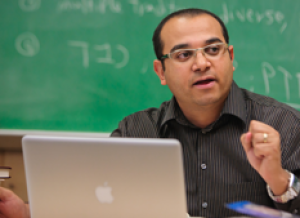
Nekeisha Alayna Alexis Coordinator Intercultural Competence and Undoing Racism Anabaptist Mennonite Biblical Seminary Safwat Marzouk Assistant Professor of Old Testament Anabaptist Mennonite Biblical Seminary Recent spates of lethal violence against people of color—and black men and women in particular— are devastating reminders of the high cost of unaddressed oppression. The race- and class-based killings of Mike Brown in Ferguson, Mo.; John Crawford in Beavercreek, Ohio; Eric Gardner in Staten Island, New York; and Renisha McBride in Dearborn Heights, Mich.; to name a few, undercut illusions of how close we are to a “post-racial” or just society. However, these tragedies must...
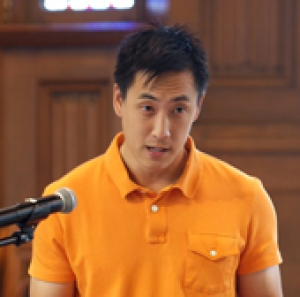
Rev. Gerald C. Liu, Ph.D. Assistant Professor of Homiletics and Worship Arts Drew Theological School I teach preaching at Drew Theological School. Two sets of questions guide my pedagogy. One involves hermeneutics: I compel my students to ask, ‘How does “preaching” manifest beyond our words and in the larger world?’ and ‘Why should we pay attention to what others have to say?’ The other set wrestles with theodicy: ‘How do we keep the faith when our words do not suffice?’ The killing of Michael (Mike) Brown haunts those homiletic interrogatives because he made a proclamation before being gunned down. Brown.
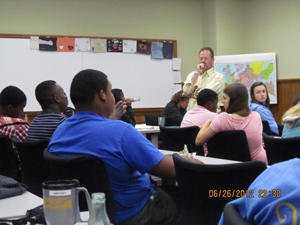
Greg Carey, Ph.D. Professor of New Testament Lancaster Theological Seminary My friend Chuck Melchert took a significant risk once when we were playing a round of golf together. Chuck retired after serving as Dean of the Presbyterian School of Christian Education, and he knows more about teaching than just about anybody I know. He also sits in on my classes from time to time. “Can I tell you something?” Chuck asked. “When African American students in your class speak from their experience, you almost always follow up by explaining why you understand what they’re talking about.” Chuck’s words were hard to...
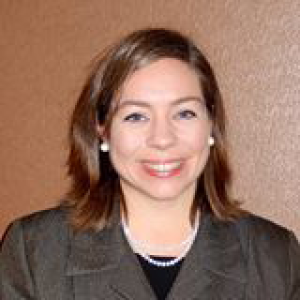
Mindy McGarrah Sharp, PhD Assistant Professor of Pastoral Theology and Ethics Phillips Theological Seminary As I followed the #FergusonSyllabus twitter conversation just before this semester began, I considered ways to address race in a new way in my pastoral care course. Unmasking structures of suffering and developing anti-racist pastoral care practices are already important to both my research and my pedagogy. What is different about race matters this semester? With only one required pastoral theology class in the curriculum, I take seriously my moral obligation to prepare students to be present and responsive to the personal and structural dynamics of...
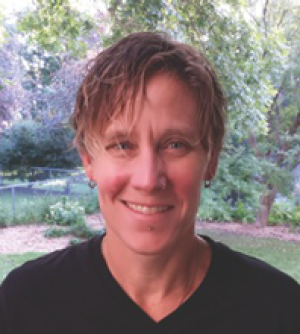
Jennifer Harvey, PhD Associate Professor of Religion Drake University blog: livingformations.com “The asceticism of teaching is the willingness to teach the students you have rather than the students you wish you had.” The rigor and conviction of Patricia O’Connell Killen’s claim about teaching as a practice has impacted my approach to the classroom more than anything else in the ten years I’ve been working at this difficult craft. A teaching practice of being there, in a spirit of willingness, regardless of who shows up, is a challenge. I suspect I don’t have to convince you of this. Who among us...
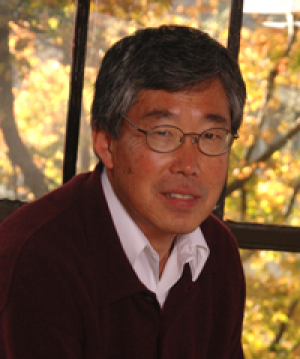
Fumitaka Matsuoka, Ph.D. Robert Gordon Sproul Professor of Theology Emeritus Pacific School of Religion The Ferguson story reminds me of the “Rashomon Effect,” named for late Japanese movie director Akira Kurosawa’s film Rashomon. In the film a crime witnessed by four individuals is described in four mutually contradictory ways. The Rashomon Effect is contradictory and often has opposing interpretations of the same event by different people. The heart of the matter in the Rashomon Effect is the question of truth and truth-telling. Whose understanding of the truth matters most? In light of the recent killing of Michael Brown, an African.
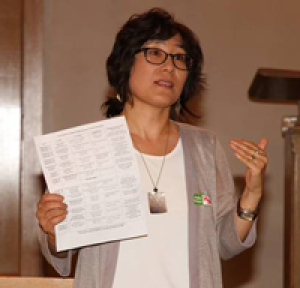
HyeRan Kim-Cragg, Ph.D. Lydia Gruchy Professor of Pastoral Studies St. Andrew’s College (Saskatoon) I am on sabbatical this year. When the shooting in Ferguson occurred, it got me thinking about the last course I was teaching before I went on sabbatical. I pulled out the syllabus and began taking notes on this event as a “living document.” As a practical theologian, “the situation” is a primary document from which to read and upon which to reflect. It can be used to make sense and meaning of the reality that is unfolding. The course is called, “Race, Colonialism, Canadian Identities, and...
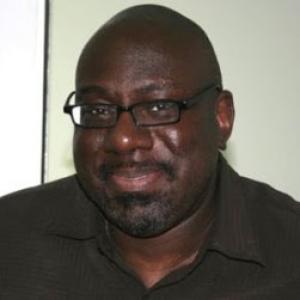
One of my earliest experiences was my first day at school in Bradford, West Yorkshire, in The United Kingdom. Sitting in what was the equivalent of the reception or the beginner's class, I suddenly felt an intense pain in my right arm. I turned around to find that I was being bitten by this White boy sitting next to me. When I asked him why he had bitten me, he said "I wanted to see what colour blood you have. My nan (colloqualism for Grandmother) says that you coloured people have different blood to us." That incident, when I was 4 years old, has stayed with me. The actions of that young White boy were based on the assumption that I was somehow different to (and less than) him. As I am writing this piece the news is awash with the disturbances in Ferguson, Missouri, where an unarmed Black man was shot dead, killed by the police. While the two events are separated by over 40 years, they are linked in the casual disregard many White societies still have towards Black people. The teachable moment that arises from any casual observation of the latter event, which in my case is informed by the former, is that of subjectivity. What does it mean to be a subject? What does it mean to be a human being endowed with the capacity to create self meaning and to generate worth and 'somebodiness' in the world? The converse of being a subject is to be an object. Objects have no intrinsic meaning in and of themselves. Meaning for an object is given to it, not from within, like a subject, but from without, by external forces. To treat a subject as if it were an object, i.e. with no intrinsic worth other than what is given it, is often named as "objectification." For a human being to be treated as if they are an object means that they are considered by others as having no intrinsic meaning or value in and of themselves. Therefore, they can be treated as others so decide. So I could be bitten with little thought given as to whether it was right, justified, or how I might feel. More crucially, for the purposes of this blog, it also means that an unarmed Black man can be shot and the burden of responsibility be placed on the moral character of the objectified Black youth and not the White, armed police officer. One of my all time heroes is the South African freedom fighter, Steve Biko. Biko was an advocate of "Black Consciousness," a sociopolitical movement committed to enabling Black Africans in South Africa to reclaim their innate subjectivity. For Biko, it was imperative that Black people rediscover what it meant to generate their own internalised self meaning and definition of self that transcended the objectified impositions of White racists. Biko was murdered in 1977. In the 37 years since then much has changed. There is a Black man in the White House. Something that would have been considered impossible in 1977. And yet the dehumanising forces that give rise to objectification sadly remain. Black people continue to be treated as objects and have their innate self worth and claims to dignity and even life trampled upon and transgressed. The challenge for theological educators is one of preparing our students to both deconstruct and transform the objectifying tendencies of White hegemonic systems, in order that the innate subjectivity of all people, including Black people, can be acknowledged. The life, struggles, and ultimately, the death of Steve Biko reminds us that disinterested knowledge for knowledge's sake is a luxury we can ill afford when faced with the death dealing forces of objectification. Theological education must be transformative and committed to the human flourishing of all peoples. The people of Ferguson, Missouri and beyond deserve nothing less. This model of theological education is one that is embedded in both the pedagogical processes and the subject-content of the curriculum. In terms of both pedagogical and subject-content, it is the concern to bring the wider world and the lived realities of human subjectivity into the classroom and the teaching moment. I have constantly asked of students "How does the human subject impact upon the intellectual theories and frameworks we are addressing?" So in classes on say "theological reflection" or "Christian formation", the question becomes "How does gender or other issues of power impact what we notionally believe it means to be a Christian?" The point I am trying to get them to see is that incidents such as me being bitten back in the late 1960's, or the shooting of an unarmed Black man in Ferguson in 2014, or the death of Steve Biko in 1977, do not just fall from the sky. They don’t arrive fully formed. They are constructed. They have their antecedents in the myriad ways in which power and the negative hermeneutics of difference lead to destructive forms of objectification, which in turn, give rise to a continuum of violence. Sadly, the highly charged political agenda I am outlining for a transformative mode of theological education has found very few takers. The continued push for a non-committed, seemingly neutral, process of teaching and learning still holds sway and far too much education operates as if the incidents impacting Ferguson, Missouri do not exist. We have a long way to go.
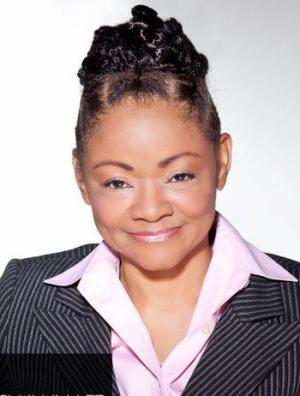
Rev. Dr. Mitzi J. Smith, Ph.D. Associate Professor of New Testament & Early Christian Studies Ashland Theological Seminary/Detroit Center One day in 2009 after President Obama took office, I walked into my Greek exegesis class at Ashland Theological Seminary in Detroi t and one of two white male students asked, “Dr. Smith, don’t you think we live in a post-racial society given we have elected a black President and here I am sitting in your class a black female with a Harvard Ph.D.?” I didn’t doubt my student’s sincerity. I’d like to think that he felt safe enough in that space...
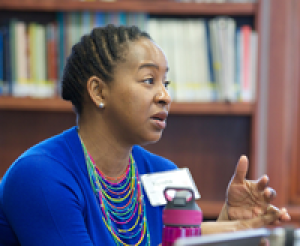
Nyasha Junior, Ph.D. Assistant Professor of Hebrew Bible Howard University School of Divinity Visit her website: www.nyashajunior.com I am organized. I have to-do lists, stop-doing lists, someday lists, and checklists galore. When it’s time to prep for the semester, I pull up my teaching Excel spreadsheet and get to work. Order books. Revise syllabus. Set up BlackBoard. And request to be assigned to my favorite sunny classroom. I had my lecture ready for the first day of my Introduction to Old Testament/Hebrew Bible class. It is a combination of welcome, syllabus review, and class overview while channeling Lou Gossett, Jr....